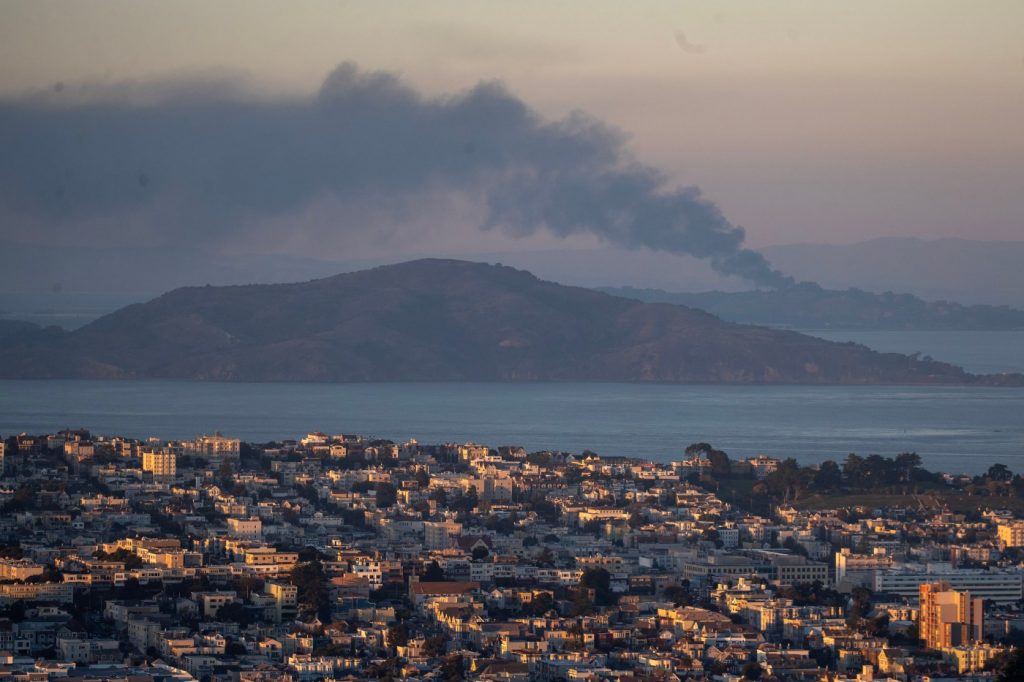After years of litigation, two major Bay Area refineries have agreed to drop their lawsuits against the regional air quality management district and come into compliance with one of the most stringent air quality standards in the country.
The Bay Area Air Quality Management District announced Tuesday that it had come to two separate agreements with the Chevron and the Martinez Refining Company refineries. Both had sued the district in 2021 over Regulation 6-5, a emissions reduction requirement that would require the refineries to drop their emissions of airborne particulate matter by 80% and 70%, respectively.
“Ultimately what they’re agreeing to is what they should have agreed to three years ago, which is comply to with the rule,” said John Gioia, a Contra Costa County supervisor representing Richmond.
As part of the agreement, Chevron submitted to $20 million in fines for 678 violations unrelated to Regulation 6-5 as well as “unprecedented penalties” if they fail to meet the 2026 compliance deadline. The Martinez Refining Company, meanwhile, agreed to use a continuous monitoring system to ensure compliance. Both refineries will pay half of the Air Quality Management District’s attorney fees.
Related Articles
Martinez refinery accidentally releases coke dust
Opinion: Carbon capture in Montezuma Wetlands is a dangerous plan
New pollution rules could improve air quality in Bay Area, other parts of California
Flaring will continue at Martinez Refining Company facility
What’s indoor air quality like in long-term care facilities during wildfires? Worse than you’d think
Air quality in Richmond and Martinez have long been a concern, where many residents suffer from elevated health rates of health concerns, including adult asthma.
Rule 6-5, which the Air District refers to as “the most health-protective rule of its kind in the nation,” is meant to address those concerns. The rule targets emissions from “fluidized catalytic cracking units,” devices used in the manufacture of gasoline and the largest sources of PM at refineries. The Air District estimates that the emission reductions will reduce early deaths and other health impacts, leading to tens of millions of dollars per year in health benefits.
“The Air District’s agreements with Chevron and MRC mark a turning point in our commitment to enforcing air quality regulations and deterring future violations throughout the Bay Area,” said Dr. Philip Fine, the executive officer of the Air District. “The record-breaking penalties and commitment by the refineries to comply with our health-protective Rule 6-5 will help ensure a cleaner, healthier future for all Bay Area residents.”


